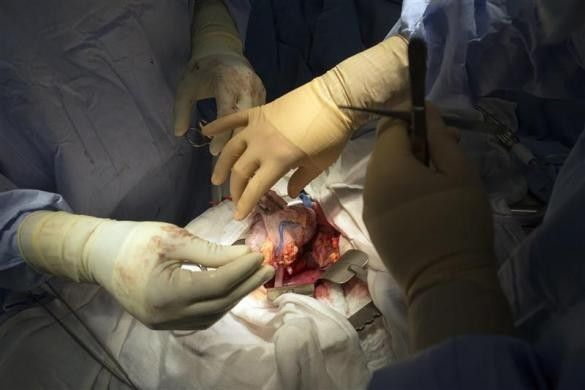Chinese Mum Has 2 Sons Needing Kidney Transplant, But She Could Only Donate One Kidney

Lian Ronghua, a Chinese mother, faced a decision no mum would ever want to make. She has two adult sons who have kidney ailments that require an organ transplant. However, she can only donate one kidney since she must keep one for herself.
Her husband does not qualify as a kidney donor because of his hypertension although his kidney is in good condition, reports Elite Readers. Lian cried endlessly as she loved her sons equally and had a hard time making the decision if her kidney would go to her first son, 26-year-old Li Haiqing, or the second son, 24-year-old Li Haisong.
Haiqing made the decision on her behalf by giving way to his younger brother. As a medical student, he knew the risks to his life of not getting the kidney of his mother, but he also knew it would mean death for his sibling.
Prior to the transplant, Lian poured out her grief at the decision. She said, “I only have one kidney and I can only save one son. No matter who I give it to it’s unfair.”
The surgery was successful. There is still hope for Haiqing if a matching kidney donor would be found.
But there is the question of paying for a second transplant since the family’s savings was used on Haisong’s surgery. The family can perhaps take a cue from the Griner family in Florida who sought funds through the crowdfunding site GoFundMe through which they raised $80,000.
While the Griners raised that amount in just six days because they used the photo of Sammy who gained Internet fame as a baby clenching his fist and a mean face that was used in various memes, heartwarming stories like that of the Li family could equally evoke a response from netizens.
According to a study by the National Institutes of Health of the US National Library of Medicine, published in PubMed, the median total hospital cost for a kidney transplant surgery in China is $10,531. It was based on demographic and clinical date of 103 consecutive patients who underwent the procedure between January 2007 and January 2011.
The cost may appear to be lower compared to developed nations, but it is still a heavy burden for the government and the patients in China, the study concluded. The bulk of the cost, or 69 percent, was on medication, so the study recommended more efforts to reduce the cost of drugs in the Asian giant.
To contact the writer, email: v.hernandez@ibtimes.com.au





















